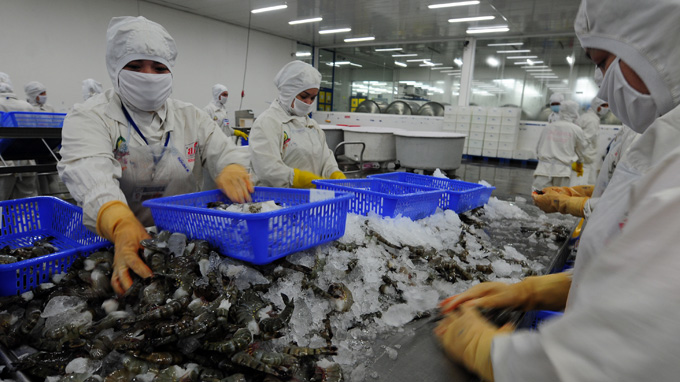Though Vietnam macro-economic situation has already been stabilized, and will remain resilient for a certain time, core problems in the local banking sector and State-owned enterprises (SOEs) have yet been addressed, said US-based Fitch Ratings in its latest commentary on the local economy.
“Vietnam's economy continues to stabilize, and has withstood the global financial volatility which has hit other regional emerging economies”.
“However, medium-term economic prospects and the sovereign's credit profile remain weighed down by the slow pace of asset restructuring in the banking sector and sluggish reforms of state owned enterprises (SOEs),” said Fitch.
The macroeconomic stabilization trend has persisted due to more effective management of monetary and fiscal policies.
This is apparent through a current account position which is on course to remaining in a small surplus, and annual inflation which should be contained within the high single digits.
Meanwhile, GDP growth looks to have bottomed out with Q3 growth at 5.5 percent year-on-year, up from around 4.9 percent in H113.
Moreover, the macro-stabilization trend has not been thrown off course by the financial volatility which has gripped other regional economies.
In India and Indonesia, such volatility has raised currency strains, left corporate and bank balance sheets somewhat vulnerable, and resulted in policy tightening.
One reason for Vietnam's relative financial stability is the shift in the current account position to a surplus since 2011. This has sharply lowered the net external financing requirement and helped rebuild foreign-currency reserves to around $27 billion by end-May - around 2.7 months of current external payments.
Another reason is that Vietnam is less dependent on the type of portfolio flows that have proven rather fickle - amid expectations of an eventual tapering of the Fed's quantitative easing policies, and heightened global investor scrutiny of emerging-market vulnerabilities.
Lastly, a healthy trend in foreign direct investment (FDI) - up 36 percent year-on-year to $15 billion in the year to September - has buffered the balance of payments.
Vietnam has historically attracted more FDI (as a percentage of GDP) than its rated peers, and this has also contributed to a structural transformation of the export base. That, in turn, has underpinned a robust pace of export growth since 2012.
“Nonetheless, we remain doubtful as to whether Vietnam's GDP growth rate can pick up sharply and revert to a 7 percent level - as was the case in the last decade. This is due to two important reasons. First, the banking sector remains encumbered by substantial bad loans.”
“We do not think the current asset restructuring measures - through the creation of a state-owned asset management company (VAMC) - will replenish capital sufficiently or swiftly enough to bring about a healthy pace of credit extension to the productive sector any time soon.”
Greater foreign participation in the banking sector, as hinted recently by the prime minister, would lift ownership restrictions. That could bring in much-needed capital and facilitate a quicker restructuring of Vietnamese banks.
But the details and timing of any such liberalization is still uncertain.
Second, SOE reforms have progressed slowly at best. Recent statements suggesting a possible speeding-up of their ownership and governance structures would accord with greater transparency and market-driven principles, and could be credit positive.
But removal of political protection, and introduction of competition in this area, is easier said than done. The upshot of all this is that macro-stabilization is evident, but the prospect of a sharp improvement in growth prospects is not obvious.
Vietnam's banking sector has extended significant credit, with a private credit/GDP ratio of 95 percent at end-2012.
Moreover, the highly indebted and largely unreformed SOEs play a very large strategic role.
"Thus a protracted pace of asset restructuring and SOE deleveraging, unless speeded up, will continue to weigh on economic activity and place large contingent risks on the sovereign's (B+/Stable) credit profile," Fitch said.


















































